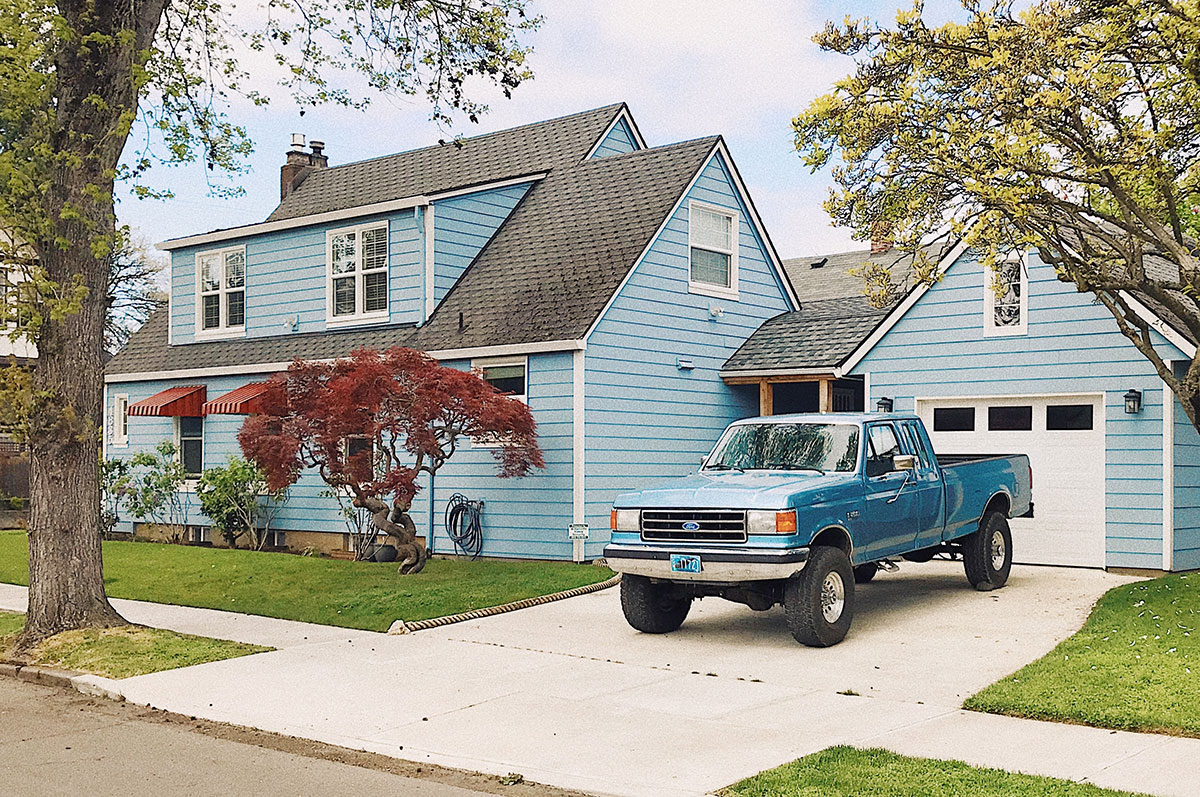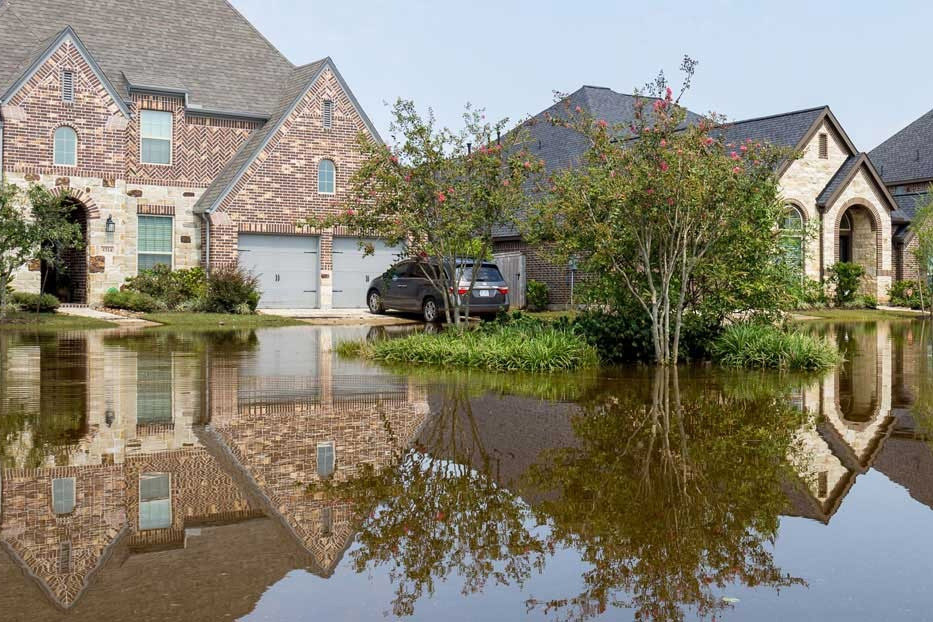Since 1931, Allstate Insurance has assisted customers with auto insurance. Now, more than 70 years later, the company offers numerous insurance products like life insurance, business insurance, and identity theft insurance. Allstate also lends a hand to communities through the Allstate Foundation, which has offered driver’s education courses, assisted in rebuilding neighborhoods, and numerous other activities spanning multiple decades.
Allstate Home Insurance: Company Overview

Allstate home insurance is one of the company’s most popular offerings. The insurance company protects homeowners and their homes in all states except for California. Homeowners can work with a licensed Allstate insurance agent to get the coverage they need with the most affordable premiums, thanks to customizable coverage and discounts that reward loyal homeowners.
Allstate is not currently BBB accredited but has an A+ rating overall. However, the ratings for Allstate’s homeowner’s insurance are somewhat mixed, with some customers claiming higher-than-average premiums, problems getting issues resolved with customer service, and delays in canceling policies.
As one of the best homeowners insurance companies, competitors of Allstate include:
- Farmers Insurance
- Liberty Mutual
- American Family
- Progressive
- Amica
- Lemonade
- State Farm
- Erie Insurance
- USAA
California homeowners can no longer choose Allstate for homeowners coverage. The insurance company recently stopped offering coverage to California homeowners due to wildfire risks.
Still, Allstate is one of the largest homeowner’s insurance companies in the country. Many homeowners enjoy it for its easy quoting and sign-up process, customizable coverage, and discounts for being loyal Allstate customers.
Pros
- Discounts for bundling, autopay, and more
- Coverage in most states
- Extra protection available for renting out home
- Several add-ons for customizable coverage
Cons
- Homeowners insurance not available in California
- Mixed customer reviews
- Relatively higher premiums compared to other companies
Types of Coverage Available
Allstate home insurance includes a few standard insurance coverages, such as dwelling coverage and liability coverage.
Dwelling
Dwelling coverage is the most common type of insurance to have on your home. A home insurance policy typically includes enough dwelling coverage to replace your full home in the event of a covered peril. It protects against perils like fire, theft, vandalism, or windstorms.
Dwelling coverage includes the full structure of your home plus attached parts of the home, like a covered porch or attached garage. However, you may need separate coverage to insure unattached parts of the home, like sheds or greenhouses.
Homeowners who want to ensure that their dwelling coverage provides enough protection for repairs and replacements to account for potential rises in construction costs in the future can ask Allstate for an increase, which may also increase premiums.
Liability
Liability coverage pays for fees related to any injury or property damage you might cause. For instance, if you accidentally back your car into the corner of your neighbor’s garage, your liability coverage will cover any legal or insurance fees resulting from the accident. It can also protect against injuries or damages caused away from your or someone else’s home that you are at fault for.
A common amount of liability insurance is $25,000 in injury coverage per person, $50,000 in injury coverage per incident, and $25,000 in property damage coverage per incident. However, you can ask Allstate to increase these amounts on your home insurance policy for extra protection, but be aware that additional limits will likely raise your premium.
Personal Property
Your home’s structure is protected by dwelling coverage, but dwelling coverage doesn’t help you pay for damaged personal belongings. If you experience a fire that damages most of your clothing, electronics, and other items, for example, you’ll need personal property coverage to provide the necessary cash to replace those belongings.
Personal property coverage is often set to about half of your dwelling coverage, but it can be more or less. You can ask for an increase if you believe your personal belongings are worth more than what your coverage allows.
Depending on your policy, you may have actual cash value or replacement cost coverage. Actual cash value takes depreciation into account when considering the value of your items, while replacement cost coverage aligns with the amount it would take to replace items at their current market value. As you might guess, replacement cost coverage offers the most coverage but is also typically more expensive.
Guest Medical
It’s common to have guests in your home, but when you do, you want to avoid any injuries that occur on your property. Unfortunately, it can happen, and guest medical protection keeps you covered in the event of an accident.
If a guest accidentally gets injured while in your home or on your property, guest medical coverage can pay for emergency room visits, hospital stays, x-rays, and other medical services necessary for your guest. Although standard limits usually aren’t above $5,000, you can ask Allstate to increase your default guest medical coverage if needed.
Optional Coverage

To help homeowners get the right insurance coverage to keep their personal belongings and home protected, Allstate provides additional coverage options that homeowners can add to their policies. These coverages can increase an insurance premium but are helpful for customizing a new policy or allowing current customers to tweak their policies according to changing needs.
The following are additional coverage options Allstate home insurance offers:
- Yard and garden: Homeowners with high-end landscaping can get protection for trees, shrubs, and other pieces of their landscaping they’d like to keep covered.
- Musical instruments: Adds additional protection for musical instruments, whose values may not be fully covered under a traditional homeowner’s policy.
- Sports equipment: Similar to musical instrument coverage, homeowners can add this rider to ensure extra protection of sports equipment.
- Business property: Homeowners that keep business equipment or inventory inside their homes can add this optional coverage for additional protection on business-related items.
- Water backup: Water damage to floors, walls, or personal belongings caused by water backups can be covered under this insurance.
- Scheduled personal property: This option adds extra coverage for high-value items based on their worth, like antiques or collections.
- Electronic data recovery: If a homeowner loses data stored on a mobile device or computer, this coverage may help cover the cost of restoring that data.
- Green improvement: Green improvement coverage helps homeowners replace current items in their home already covered by homeowner’s insurance with more energy-efficient items.
- Identity theft: This rider helps homeowners pay costs associated with someone stealing their identity, such as lost wages and legal fees.
Other Types of Insurance

In addition to standard insurance and optional coverages, Allstate home insurance has other types of insurance for specific homeowner needs.
Personal Umbrella Policy
Personal umbrella insurance provides additional liability insurance to a homeowners insurance plan. Personal umbrella insurance can come in handy when significant problems arise, like serious injuries from an accident occurring at your home or your dog biting a delivery person.
The umbrella policy adds protection for property damage, bodily injury, and personal injury. Usually, people choose umbrella coverage if they have both an auto and homeowner’s policy with a company, but it can also be added solely to a homeowner’s insurance policy.
Mobile Home
Mobile homes and manufactured homes can be covered under an Allstate home insurance policy, but they need a special policy for these types of homes, which are typically considered higher risk than traditional homes.
Since they are higher risk, homeowners should expect to have higher premiums than they would with traditional Allstate homeowner’s insurance. However, mobile homeowners can still get the same coverage options as other homeowners, including dwelling coverage, liability, and personal property insurance, along with discounts for multiple policies, original ownership, and more.
Flood Insurance
Several states and locations require homeowners to have flood insurance because they live in an area prone to flooding. Additionally, some lenders may require flood insurance even if a location doesn’t.
Homeowners who aren’t required to have flood insurance may still prefer to carry it, as it protects the home and personal property from damage caused by flooding, which isn’t usually included in a standard home insurance policy. Flood insurance through Allstate is written through the National Flood Insurance Program.
HostAdvantage
HostAdvantage is a unique insurance coverage for homeowners who rent their homes to others, either permanently or temporarily. This coverage adds extra protection against theft and damages that may occur as a result of renting the home. For instance, if your renter tries to mount a TV but accidentally puts a large hole in the wall while trying to hang the mount, your HostAdvantage insurance can cover the damages.
Pricing and Costs

Based on our research, the average Allstate policy runs about $1,600-$2,000 per year. This is right in line with the average homeowner’s insurance policy across the nation, which is in the $1,700-$1,900 range.
Home insurance pricing varies significantly by location, the size of the home, and your specific insurance coverage options. Still, some customer reviews note that Allstate tends to have higher costs for them than other companies, but many stick with Allstate because they feel comfortable with their Allstate agent and their customer service and believe their insurance coverage is worth the costs.
Once you get a quote from Allstate, you can speak with an agent to customize your quote, ensure that you’re getting all discounts you qualify for, and tweak your coverage options to lower your premium.
Deductibles
Another way to reduce the cost of your premiums is to adjust your deductible. Insurance deductibles are the amount you pay before your insurance company begins paying for covered services. For example, if lightning split branches of a tree that fell into your porch, and you have a $1,000 deductible for dwelling coverage, you’d need to pay $1,000 before Allstate pays its portion for the damages.
The higher the deductible, the lower your insurance premium typically is because you end up paying more for each claim. Therefore, a $2,000 deductible can decrease your premium compared to a $1,000 deductible.
Just be sure not to place your deductible higher than what you can afford to pay if you need to file a claim. It might be worthwhile to have slightly higher premiums but lower deductibles to ensure that you can cover the full deductible to allow claims to process without unnecessary hang-ups.
Discounts

Allstate is well-known for its insurance discounts for eligible customers, especially its bundling discounts for customers with more than one policy through Allstate, like home insurance and car insurance. This discount automatically applies if you have multiple Allstate policies, and homeowners can save up to 25% if they bundle both home and car insurance.
Other discounts offered by Allstate include:
- New home buyer: Recent homebuyers or homebuyers purchasing a newly constructed home can receive this discount.
- Autopay: Sign up for automatic payment withdrawals and get up to a 5% discount.
- Early signing: Sign up for a new policy with Allstate at least seven days before your current one expires to get up to 10% off your policy.
- Welcome and loyalty: Allstate offers up to 10% off to new customers and loyal customers who continue to stay with Allstate home insurance.
- Protective device: Installed theft, security, and fire devices may help you lower your premiums.
- Claim-free: If you don’t have a recent home insurance claim when you sign up for Allstate, you could save as much as 20%.
- Good payment history: Having a solid payment history on your home insurance, such as on-time payments, can give you a discount with Allstate.
How To Get a Quote

Homeowners buying a home or interested in switching their insurance to Allstate can get a quote online by clicking the ‘Get a Quote’ button on the website. Choose ‘Home’ to begin a home insurance quote by answering questions about yourself and your home.
If you’d prefer some help with your quote, you can locate an agent to assist you or call 800-726-6033 for customer service.
How To File a Claim
Allstate home insurance allows you to submit a claim online for quick and convenient processing. To start, log into your account via the website or mobile app. Then, navigate to the Claims area to begin your claim. The process walks you through each step, including describing what occurred and submitting photos of the damage. Allstate will then contact you if any more information is needed before processing your claim and funding repairs.
Once your claim is filed, Allstate provides a claim number to track online or in the mobile app.
Allstate Mobile App

The Allstate mobile app is a helpful resource for Allstate policyholders to manage their accounts without needing computer access. The app is available for phones running iOS or Android, with features like policy viewing, claims submissions, customer service contact, and bill pay.
Customer Service Contact Info
Allstate Phone Support: 800-726-6033
You can visit the customer service page to find the live chat feature to speak with a representative. Allstate is also available on Twitter and via email.
Existing Allstate customers can find additional customer service contact information via their online accounts or the Allstate mobile app.
Additionally, prospective and current customers can also find an Allstate agent to help them get a quote, answer their questions, or change policy information.
Is Allstate Homeowners Insurance Right for Me?

With numerous home insurance companies available and rising costs factoring into household budgets, it’s natural to try to find the best homeowners insurance to fit the needs of your home and budget.
Allstate home insurance might be the company for you if you live outside of California, prefer to use an agent to guide you through the home insurance process, and enjoy being able to check your account via a convenient mobile app. Allstate is a well-known and reputable company with a widespread network of agents and resources to assist homeowners. There are also multiple coverage options to customize your policy with the best protection for your home and family.
However, depending on your area, Allstate may be pricier than other insurers. People who already have car or life insurance through Allstate may benefit the most from adding home insurance to receive a multi-policy discount.
Before choosing your home insurance company, get a quote from Allstate and other top contenders on your list. Most homeowner’s insurance companies provide quick and simple online quotes so you can easily compare your coverages and premiums from each.






